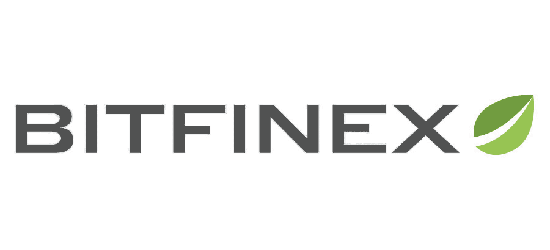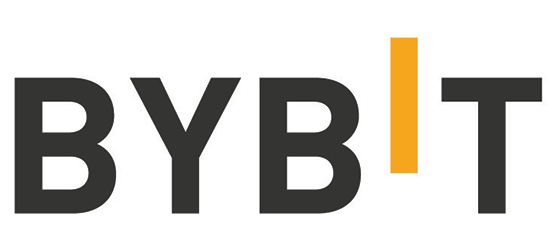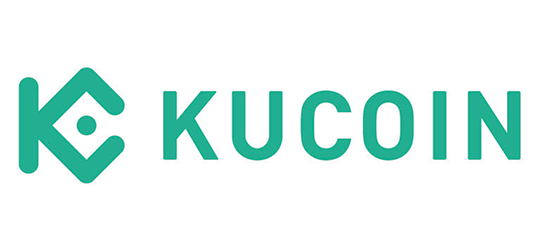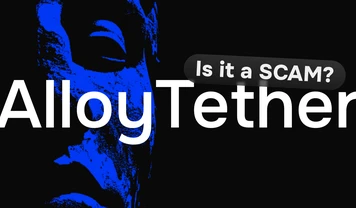
Crypto Hot Wallet vs. Cold Wallet: What's the Difference
Proper asset storage is as important an aspect of the crypto industry as investing. There are many options for storing cryptocurrency, and sometimes it is difficult for an investor to choose the right wallet. In this article, we will look at the differences between hot and cold wallets, in what cases it is better to use them, as well as their pros and cons.
Wallet Types: Hot Wallets & Cold Wallets
Cryptocurrencies are blockchain-based and require digital storage systems known as wallets. Wallets give users access to their cryptocurrency funds. While they all serve the same purpose of storing assets, they differ in many other significant aspects.
There are two types of cryptocurrency wallets: hot and cold. In a nutshell, the first type of wallet is always connected to the internet, while the second is not. Hot storage refers to a digital device (browser extension, mobile app) and cold storage refers to a physical device (USB drive, paper). As you can see, they are not related to temperature changes.
The hot wallet vs. cold wallet issue leaves the investor wondering which one is better. Both hot and cold wallets protect private cryptographic keys, but do it in different ways. But this is not the only distinction: each type of wallet is unique and has its own purpose, and its choice is always a subjective matter. The user should approach this question based on their needs.

What Is a Hot Wallet
A hot wallet is an Internet-connected program or browser extension that facilitates the storage and transfer of cryptocurrencies. By creating a hot wallet, the user receives the cryptocurrencies' private keys and public addresses from the platform provider.
The private key serves as a PIN or password that gives users access to the cryptocurrencies in the wallet. Addresses are needed to send and receive cryptocurrencies from other members of the network. Private keys and addresses are also stored online and can be accessed through the user's hot wallet.
Hot wallets are convenient because they are designed for everyday use, for example, for buying goods and services, for transferring small amounts to friends and relatives. Investors usually opt for hot wallets because they are better used for regular transactions rather than for storing large sums. They are easy to use and easily accessible. Investors with large cryptocurrency portfolios prefer to store most of their assets in cold wallets.
Examples of leading hot wallet solutions
In the world of hot crypto wallets, there are some favorites that have earned the trust of many investors. Hot wallets also vary among themselves, for example, there are browser extensions, mobile app or web wallets. There are also task-oriented or ecosystem-oriented wallets. Here are examples of leading solutions:
- Trust Wallet: Echoing its name, this is a trusted hot wallet from the popular cryptocurrency exchange Binance. Trust Wallet has its own mobile app and supports over 100,000 cryptocurrencies. It has become the preferred choice for many investors, not only because of its support for numerous cryptocurrencies or simple interface, but also because of its ability to connect to decentralized exchanges through the Kyber Network protocol. In addition to the ability to buy cryptocurrency within the app, there is also a staking feature.
- Coinbase Wallet: a hot wallet created by the cryptocurrency exchange Coinbase. The distinctive feature is that it is completely non-custodial, meaning that the user has independent control over their crypto assets, as all private keys are stored with them.
- MetaMask: is focused on a specific ecosystem, namely Ethereum, i.e. it supports all Ethereum-based tokens. It has both a mobile and browser version. It allows you to buy cryptocurrency within the wallet.
- Exodus: another popular choice of crypto investors. It differs in that it has a mobile and desktop version. In addition to all the basic storage and transfer functions, it has an in-app token swap function.
- Enjin Wallet: the perfect choice for those who want to buy cryptocurrency directly via bank card. In addition to the basic functions of buying, storing and exchanging, the wallet also allows you to use dApps within the app.
- eToro: available as a web wallet or mobile app. The wallet is owned by the cryptocurrency exchange of the same name and is licensed by various organizations including ASIC, FINRA, CySEC and FCA. It supports a variety of features from cryptocurrency storage and trading to staking and copy trading.
- MyEtherWallet: a popular hot wallet that supports the Ethereum network. This means that the wallet can store thousands of ERC20 tokens. It can be downloaded as a mobile app for iOS and Android, and is completely free.
Hot Wallet Pros and Cons
There are pros and cons of using hot wallets, here are some of them:
| Pros | Cons |
| Creating a hot wallet can be done in minutes | Vulnerable to hacking because they are constantly connected to the Internet |
| Quick access to cryptocurrency and easy to make transactions | Users may lose access to funds in the event of a provider outage |
| Simple interface, suitable for beginners | Risk of phishing attacks |
| Ability to back up private keys: eliminates the possibility of accidental loss | Limited memory capacity |
| Support for many cryptocurrencies: an ideal solution for portfolio diversification | Not suitable for long-term storage |
| Free of cost | The issue of compliance with local regulatory requirements |
Despite the existing disadvantages of hot wallets regarding security, many reputable providers of this type of wallet minimize potential risks, for example, by keeping most of their clients' funds offline, and keeping a certain amount needed for withdrawals in hot wallets.

What Is a Cold Wallet
A cold wallet is often a physical device without internet access. Cold storage for crypto is synonymous with a more secure method of long-term cryptocurrency storage. These autonomous cryptocurrency wallets allow you to store private keys in a secure setting.
Cold wallets come in different varieties, but they are all similar in that when transferring funds, you need to connect the offline device to the Internet. These wallets are virtually impossible to hack unless someone gains access to the wallet itself. Losing access to the wallet is also eliminated unless the user has lost the device itself. Even then, there are safe ways to recover the private keys.
Cold wallets are divided into the following types:
- Hardware wallets are the most popular type of wallet. It is a small USB drive that stores the private key;
- Paper wallets is a piece of paper with the private and public keys printed on it that serves as your wallet.
- Audio wallets encrypts and stores private keys in audio format on CDs and USB drives, which can be decrypted using a spectroscope application;
- Deep cold storage is an additional type of protection for the above types of cold wallets. Can be anything from a safe to an unusual stash.
Examples of cold wallet storage solutions
There are several wallet gadgets that are popular among the investors. The reliable cold storage solutions are:
- Ledger Nano X: the latest version of the cold wallet from popular vendor Ledger, gathering features and solutions that were not present in previous versions. The wallet in the form of a USB drive connects to computers and cell phones, and has Bluetooth functionality. The wallet allows you to store a huge number of different cryptocurrencies, but does not allow you to trade them directly.
- Trezor Model T: allows you to store multiple keys and exchange cryptocurrency within the cold wallet system.
- Safepal: as well as the above analogs allows you to store cryptocurrency offline. A distinctive feature is that such a wallet is equipped with strong protection mechanisms (e.g., self-destruction in case of unauthorized access attempt).
- KeepKey: in addition to the storage function, it has its own dApp Store that provides access to thousands of De-Fi features. It catches the attention of many investors due to its ease of use, as the wallet is equipped with an OLED display. Besides the transaction speed customization feature is also the reason this cold wallet is so popular among crypto investors.
- BitBox02: a compact cryptocurrency wallet targeting the Ethereum ecosystem. It supports up to 1500 cryptocurrencies and NFTs. There are additional features like staking and trading cryptocurrencies. An interesting feature of the wallet is that it has a microSD card slot for backup.
- Coldcard: is a Bitcoin cold storage wallet. But it is known for having the highest level of security among all the cold wallets on the market. Its sole purpose is to store Bitcoins safely.
Cold Wallet Pros and Cons
Here are some pros and cons of cold wallets:
| Pros | Cons |
| High level of security due to lack of internet connection | A paid and often expensive solution |
| Require confirmation of transactions on an external device | Difficult to use, for example, a single installation takes a huge amount of time and knowledge |
| Full control over your funds | It's easy to lose your device |
| Portable device |
What is a Crypto Hot Wallet vs. Cold Wallet: Which is better
| Hot Wallet | Cold Wallet | |
| Price | Free of cost | The price of cold wallets varies from $50 to $250 |
| Max amount of cryptos | Supports almost all existing cryptocurrencies | Storage to tens of thousands is available |
| Security | At an average level. Vulnerable to hacking because they are constantly connected to the Internet | High level of protection as there is no internet access |
| Recovery option | High level. Most hot wallets have recovery and backup. It is also possible to access from different devices. | Average level. There is a password recovery and backup option. However, the device cannot be restored and it is necessary to purchase a new one. |
| Better for | Easily accessible, so they are best used for regular transactions of small amounts. | Long-term storage of a large sum |
| Ease of use | Easy access since wallets are already connected to the Internet | Average level. Cold wallets require additional actions to access the Internet through USB, Wi-Fi or QR code and also knowledge |
| Interaction | High level. Many hot wallets are expanding the scope of their purpose and offer a variety of services just like cryptocurrency exchanges. For example, in addition to trading and storage, wallets offer staking, access to dApps, swap, NFT purchase and storage, and many other features. | Average Level. Cold wallets are inherently limited in functionality and prioritize increased security for cryptocurrency storage. |
Security
In terms of this factor, cold wallets are the best choice. Since this type of wallet does not have constant access to the Internet, control over the assets always belongs to the user, and additional security measures are applied to access the Internet, the possibility of cryptocurrency theft is virtually eliminated.
Meanwhile, 24/7 hot wallets are at risk of theft, phishing attacks and hacks. They also rely on a third party to store private keys in most cases, which also increases the risk of third party compromise.
Pricing
This is where the scales tip in favor of hot wallets. They are free, unlike cold storage solutions. Moreover, the price of cold wallets is often high.
Convenience
Hot wallets are considered convenient. Since hot wallets are already online they are useful for regular transactions, when cold wallets have to go through several steps of connecting to the Internet.
Interaction
Hot wallets typically offer more interaction options (depends on the specific provider). While the main goal of cold wallets is secure storage, hot wallets can offer access to dApps, swaps, staking, trading, in addition to storage.
Recovery
Despite the increased level of security that providers of both types of wallets strive to create, it is impossible to get rid of all security problems. And in such cases, investors choosing the type of wallet should think about the existing ways to recovery their wallet. Hot wallets are the leaders by this option. They have various recovery and backup options and also provide the flexibility of accessing wallets from different devices. Although cold wallets also give options for recovering and backing up lost passwords. It is not possible to recover a hardware device once it is lost or damaged.
Why Are Hot Wallets Free and Cold Wallets Are Not?
It may seem that all hot wallets are free, although this is not entirely true. Some hot wallet providers charge an additional percentage on each transaction made, which can count as a conditional fee to use a hot wallet. Cold wallets are payable because you buy a device to use them.
The Bottom Line
Now that the differences between hot and cold wallets are clear, as well as their pros and cons and other aspects of use, an investor can decide on the right wallet that meets his needs. You can use a hot wallet if you regularly transfer cryptocurrency to your friends, relatives, etc. Or you can buy a hardware wallet if you have a large amount of crypto assets and are worried about their safety. You can also take the best of both worlds and use two types of wallet if you're a super active crypto investor. And it will probably be a compromise, as you'll be striking a balance between convenience and security. Still, don't forget the importance of doing your own research.
Binance Bitbox KeepKey Ledger MetaMask SafePal Trezor Trust Wallet




























